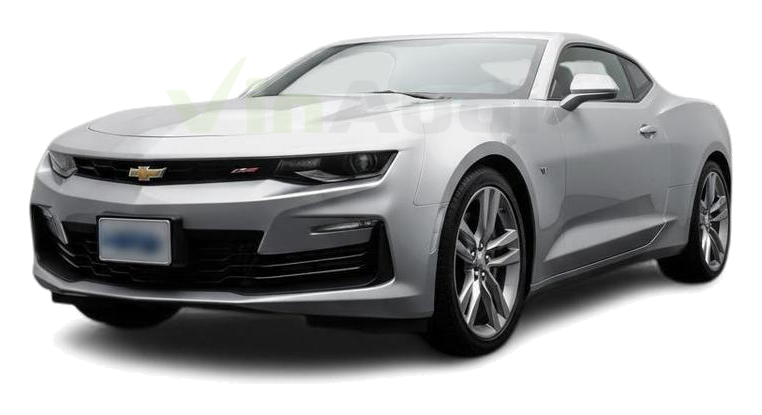The Good
The 2009 Chevrolet Express boasts powerful V8 engine options, offering exceptional towing and payload capacity for practical buyers. Its proven reliability and durable construction provide peace of mind. While comfort is basic, its utilitarian design offers strong value. For emotional buyers, it represents a capable tool that supports livelihoods and enables large-scale adventures, embodying a "get-the-job-done" spirit.
The Bad
Known weaknesses for the 2009 Chevrolet Express include its dated interior design, relatively poor fuel economy across gasoline engine options, and a less refined ride compared to more modern vans. Its sheer size can be cumbersome for city maneuverability and parking. Watch out for potential rust issues and common electrical gremlins on higher mileage units.
2009 Chevrolet Express: Quick Overview
- Engine Options:
- 4.3L V6 (available in 1500 models, sometimes 2500)
- 4.8L V8 (common in 2500 models)
- 5.3L V8 (optional in 1500/2500, often found in passenger vans)
- 6.0L V8 (standard on 3500 models, optional on 2500)
- 6.6L Duramax Diesel V8 (available in 2500/3500 models, offering substantial torque) - Horsepower:
- 4.3L V6: Approx. 195-200 hp
- 4.8L V8: Approx. 279-285 hp
- 5.3L V8: Approx. 301-310 hp
- 6.0L V8: Approx. 323-324 hp
- 6.6L Duramax Diesel V8: Approx. 250 hp with 460 lb-ft of torque - Fuel Economy (Estimated Combined):
- Gasoline V6/V8: Generally 13-16 MPG
- Duramax Diesel V8: Slightly better, around 16-19 MPG, depending on configuration and load - 0-60 MPH Times:
- Not performance-oriented, typically ranging from 8 to 10 seconds for V8 models, slower for V6. - Towing Capacity:
- Varies significantly by engine, drivetrain, and series. Ranging from approximately 6,000 lbs (1500 V6) up to 10,000 lbs (3500 with 6.0L V8 or Duramax Diesel, properly equipped). - Trim-Level Features:
- Express 1500: Light-duty, often found with V6 or 5.3L V8. More common as passenger vans. Basic amenities.
- Express 2500: Mid-duty, heavier springs, larger brakes. Common for commercial use, available with V8s or diesel.
- Express 3500: Heavy-duty, dually option (rear wheels) on some models, highest payload and towing. Standard 6.0L V8 or diesel.
- LS (Passenger Van): Basic passenger trim, air conditioning, AM/FM radio, vinyl/cloth seats.
- LT (Passenger Van): Adds features like power windows/locks, cruise control, CD player, rear climate control, upgraded interior trim.
- Cargo Van: Minimal features, typically vinyl seats, basic radio, bare cargo area for customization.
2009 Chevrolet Express Specifications
Vehicle Information
| Year | 2009 |
| Make | Chevrolet |
| Model | Express |
| Trim | - |
| Style | Cargo Van |
| Type | Van |
| Category | Cargo Van |
Manufacturing Details
| Made In | United States |
| Manufacturing City | SHREVEPORT |
Dimensions
| Doors | 3-Door |
| Curb Weight | 5642 pounds |
| Gross Vehicle Weight Rating | 9600 pounds |
| Overall Height | 82.00 inches |
| Overall Length | 244.10 inches |
| Overall Width | 79.40 inches |
| Wheelbase Length | 155.00 inches |
| Standard Seating | 2 |
Engine & Performance
| Engine | 4.3L V6 |
| Engine Size | 4.3L |
| Engine Cylinders | 6 |
| Transmission | 4-Speed Automatic |
| Transmission Type | Automatic |
| Transmission Speeds | 4-Speed |
| Drivetrain | Rear-Wheel Drive |
Additional Features
| Anti-Brake System | 4-Wheel ABS |
| Steering Type | Recirculating |
Pricing
| Manufacturer Suggested Retail Price (MSRP) | $29,540 |
| Invoice Price | $27,325 |
| Delivery Charges | $980 |
Vehicle History Report
Specifications
History
Events
History Check
Check
Check
Check
Check
Listings
Recalls
Check
Analysis
What Problems Does the 2009 Chevrolet Express Have?
Electrical problems can arise, with power window motors and HVAC blend door actuators being common failure points, affecting passenger comfort and convenience. Rust is a significant long-term concern, especially on chassis components, body panels, and around the wheel wells, particularly in areas exposed to road salt. Steering and suspension components, such as ball joints and tie rod ends, tend to wear out over time due to the vehicle's heavy-duty nature and constant use.
Regarding recalls, the 2009 Express, like many GM vehicles of its era, was affected by larger campaigns. Notably, the broad GM ignition switch recall (NHTSA Campaign Number: 14V047000) included some 2009 Express models, addressing potential engine shut-off while driving. Other recalls might involve specific component issues like steering column components (NHTSA 07V444000 for some models) or seat belt retractors. Owners should check the NHTSA website using their VIN for all applicable recalls. Long-term reliability is generally strong for the major powertrain components, but consistent maintenance is crucial to mitigate these common age and usage-related concerns.
How long will the 2009 Chevrolet Express last?
However, weaknesses over time often manifest in supporting systems. Suspension components (shocks, bushings, ball joints) will eventually wear out, demanding replacement. Electrical issues, such as power window regulators or HVAC controls, may surface. Rust remains a significant concern in wetter climates, affecting the body and undercarriage. Regular fluid changes and proactive component replacement are key to maximizing its lifespan.
What Technology & Safety Features are Included?
Driver-assistance features were minimal by today's standards, primarily focusing on fundamental stability and braking. There were no advanced systems like adaptive cruise control, lane-keeping assist, or blind-spot monitoring. The primary safety features included dual front airbags for the driver and front passenger. Anti-lock Brakes (ABS) were standard on most configurations, providing improved stopping power. GM's StabiliTrak electronic stability control system, which helps prevent skids and rollovers, was either standard or available as an option across the model lineup, especially on passenger variants, significantly enhancing vehicle control in adverse conditions.
For crash-test ratings, the National Highway Traffic Safety Administration (NHTSA) provided ratings for the 2009 Chevrolet Express. The vehicle typically received 3-4 stars for frontal impact protection, 5 stars for side impact (though this can vary by specific configuration and if side airbags were present, which were not standard), and generally 3 stars for rollover resistance due to its high center of gravity. These ratings reflect a solid, though not groundbreaking, level of occupant protection for a large commercial van of that period.
What Colors Options are Available?
2009 Chevrolet Express Prices and Market Value
Today, current used market prices vary significantly, ranging from approximately $5,000 for high-mileage, basic models to $18,000 or more for well-maintained, lower-mileage examples, especially those with the robust diesel engine or specialized upfits. Depreciation is steep initially, but these vans tend to hold their value remarkably well in the long term due to their utility and demand in commercial and conversion markets. Factors affecting resale value include mileage, overall condition (rust is a major detractor), engine choice (diesel commands a premium), cargo versus passenger configuration, and the presence of any commercial shelving or modifications.
2009 Chevrolet Express Cost of Ownership
2009 Chevrolet Express Fuel Efficiency
2009 Chevrolet Express Safety Rating
NHTSA
IIHS
2009 Chevrolet Express Warranty
Basic
Powertrain
Rust
2009 Chevrolet Express Insurance
reasonable repair costs.
How Does the 2009 Chevrolet Express Compare to Other Van?
Performance: The Express, Savana, and E-Series all offered a traditional body-on-frame construction with powerful V8 gasoline engines (and the Express/Savana also had the Duramax diesel option). This made them superior for heavy-duty towing and payload compared to the Sprinter, which, while capable, had smaller, more fuel-efficient diesel engines. The traditional vans excelled in raw power and brute strength.
Features: All the traditional American vans (Express, Savana, E-Series) were quite basic in terms of features, prioritizing utility over luxury. Interiors were spartan, and technology was minimal for 2009. The Sprinter, conversely, offered a more modern and ergonomically designed cabin, better visibility, and a slightly more refined driving experience, reflecting its European origins, though still fundamentally a commercial vehicle.
Reliability: All four vehicles are known for their workhorse reliability. The Express, Savana, and E-Series benefit from simpler, widely understood mechanicals, making parts readily available and repairs generally less expensive. The Sprinter, while robust, can have higher maintenance costs due to specialized parts and a more complex European diesel engine system.
Price: New and used, the Chevrolet Express, GMC Savana, and Ford E-Series were typically more affordable than the Dodge Sprinter, especially when considering equivalent payload and towing capabilities. The Sprinter's higher fuel efficiency often came with a premium price tag.
Alternatives:
- Similar Alternative: The 2009 Ford E-Series is the most direct competitor, offering very similar performance, reliability, and ownership costs. Deciding between the two often comes down to brand preference or specific local dealership support.
- Better Alternative (for efficiency/refinement): A 2009 Dodge Sprinter (or a true Mercedes-Benz Sprinter) would be a better choice if fuel economy, a more car-like driving experience, and better interior ergonomics are priorities, provided you are prepared for potentially higher maintenance costs for specialized parts.
Final Verdict: Is the 2009 Chevrolet Express a Good Van?
Look for well-maintained examples, ideally the 2500 or 3500 series with a V8 (preferably the 6.0L) or the Duramax diesel for optimal power and longevity. Buyers must be prepared for its relatively poor fuel economy and the likelihood of addressing age-related wear and tear. If you prioritize raw utility, affordability in the used market, and a proven track record over modern amenities and fuel efficiency, the 2009 Express remains a highly capable and valuable purchase.

